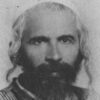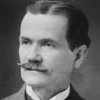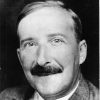Better pass a Danger once, than be always in Fear.
Thomas Fuller (1654-1734) English physician, preacher, aphorist, writer
Introductio ad Prudentiam, Vol. 1, # 114 (1725)
(Source)
Quotations about:
danger
Note not all quotations have been tagged, so Search may find additional quotes on this topic.
We should keep silent about those in power; to speak well of them almost implies flattery; to speak ill of them while they are alive is dangerous, and when they are dead is cowardly.
[L’on doit se taire sur les puissants: il y a presque toujours de la flatterie à en dire du bien; il y a du péril à en dire du mal pendant qu’ils vivent, et de la lâcheté quand ils sont morts.]
Jean de La Bruyère (1645-1696) French essayist, moralist
The Characters [Les Caractères], ch. 9 “Of the Great [Des Grands],” § 56 (9.56) (1688) [tr. Stewart (1970)]
(Source)
(Source (French)). Alternate translations:
The less we talk of the powerful, the better; what we say good of them, is often flattery: 'Tis dangerous to speak ill of 'em while they live, and villainous when they are dead.
[Bullord ed. (1696)]
The less we talk of the Great and Powerful, the better; what good we say of them is often Flattery 'Tis dangerous to speak ill of them while they are alive, and villainous when dead.
[Curll ed. (1713)]
The less we talk of the Great and Powerful, the better; what good we say of them is often Flattery: It is dangerous to speak of of them while living, it is base to insult over them when dead.
[Browne ed. (1752)]
The less we talk of the great and powerful the better; if we say any good of them, it is often almost flattery; it is dangerous to speak ill of them whilst they are alive, and cowardly when they are dead.
[tr. Van Laun (1885)]
There’s not a sea the passenger e’er pukes in,
Turns up more dangerous breakers than the Euxine.George Gordon, Lord Byron (1788-1824) English poet
Don Juan, Canto 5, st. 5 (1821)
(Source)
The Euxine is the Black Sea, from the Greek Pontos Euxeinos, which means (ironically) "the hospitable sea."
SEMPRONIUS: Oh! think what anxious moments pass between
The birth of plots, and their last fatal periods,
Oh! ’tis a dreadful interval of time,
Filled up with horror all, and big with death!
Destruction hangs on every word we speak,
On every thought, till the concluding stroke
Determines all, and closes our design.Joseph Addison (1672-1719) English essayist, poet, statesman
Cato, Act 1, sc. 3, l. 50ff (1713)
(Source)
The neurotic feels as though trapped in a gas-filled room where at any moment someone, probably himself, will strike a match.
Mignon McLaughlin (1913-1983) American journalist and author
The Second Neurotic’s Notebook, ch. 4 (1966)
(Source)
At long last, citizens, Lucius Catilina, blazing with insolence, breathing forth blasts of every audacious rascality, outrageously plotting to overthrow his country, menacing yourselves and our city with fire and sword, has been expelled from Rome by our action, or allowed to leave, or bidden farewell as he took his departure. Gone, retired, run away, broken out, express it how you will.
[Tandem aliquando, Quirites, L. Catilinam, furentem audacia, scelus anhelantem, pestem patriae nefarie molientem, vobis atque huic urbi ferro flammaque minitantem ex urbe vel eiecimus vel emisimus vel ipsum egredientem verbis prosecuti sumus. Abiit, excessit, evasit, erupit.]
Marcus Tullius Cicero (106-43 BC) Roman orator, statesman, philosopher
Orationes in Catilinam [Catilinarian Orations], No. 2, § 1, cl. 1 (2.1.1) (63-11-09 BC) [tr. Grant (1960)]
(Source)
Informing the Senate that Catiline and many of his co-conspirators had fled Rome the day before.
(Source (Latin)). Alternate translations:
At last with much ado, have we either expelled, or let out, or else waited upon L. Catiline of himself, going out of Town, foaming with rage, breathing Treason, unnaturally plotting the destruction of his Countrey, and menacing you and this City with Fire and Sword. He is gone, he is got his way, he is escaped, he is broke loose.
[tr. Wase (1671)]
At length, my fellow-citizens, Lucius Catiline, that nefarious traitor, burning with frantic fury, breathing vengeance and destruction; that public enemy, who meditated the ruin of his country, and threatened this city with sword and fire; that monster of iniquity has sounded his retreat. He is gone; he is fled; he has escaped; he has disappeared.
[tr. Sydney (1795)]
At length, O Romans, we have dismissed from the city, or driven out, or, when he was departing of his own accord, we have pursued with words, Lucius Catiline, mad with audacity, breathing wickedness, impiously planning mischief to his country, threatening fire and sword to you and to this city. He is gone, he has departed, he has disappeared, he has rushed out.
[tr. Yonge (1856)]
At length, at last, oh Romans! we have either cast out of the city Lucius Catiline, raging with audacity, panting after crime, impiously attempting the destruction of our native land, threatening you and this city with sword and with flame, or we have sent him forth, or we have followed with words him when going out. He has gone away, he has departed, he has escaped, he has burst forth.
[tr. Mongan (1879)]
At length, Romans, either we have cast out of the city, L. Catiline, raging with audacity, panting after crime, attempting nefariously the pest (destruction) of the country, threatening sword and flame to you and to this city, or we have sent (him) out, or we have followed with words himself going out. He has departed, he has gone out, he has escaped, he has burst out.
[tr. Underwood (1885)]
At length, finally, Romans, L. Catiline, raging with insolence, breathing out crime, attempting impiously the ruin of the country, threatening sword and flame to you and to this city, either we have cast out of the city, or we have sent (him) out, or with words we have followed him going himself. He has departed, he has gone forth, he has escaped, he has burst out.
[tr. Dewey (1916)]
He is gone, he has fled, he has eluded our vigilance, he has broken through our guards.
[Source]
This basic clash of ideas and wills is but one of the forces reshaping our globe — swept as it is by the tides of hope and fear, by crises in the headlines today that become mere footnotes tomorrow. Both the successes and the setbacks of the past year remain on our agenda of unfinished business. For every apparent blessing contains the seeds of danger — every area of trouble gives out a ray of hope — and the one unchangeable certainty is that nothing is certain or unchangeable.
Men will readily enough avow cruelty, passion, even avarice, but never cowardice, because such an admission would bring them, among savages and even in civilized society, into mortal danger.
[Les hommes avouent volontiers la cruauté, la colère, l’avarice même, mais jamais la lâcheté, parce que cet aveu les mettrait, chez les sauvages et même dans une société polie, en un danger mortel.]
Anatole France (1844-1924) French poet, journalist, novelist, Nobel Laureate [pseud. of Jaques-Anatole-François Thibault]
The Gods Will Have Blood [Les Dieux Ont Soif], ch. 19 [Brotteaux] (1912) [tr. Allinson (1913), The Gods Are Athirst]
(Source)
(Source (French)). Alternate translation:
Men willingly post of their cruelty, their anger, their greed even, but never of their cowardice, because to admit such a thing would put them, whether in a primitive or a civilized society, in mortal peril.
[tr. Davies (1979)]
I always fear less a dull man who is naturally strong
Than someone who is weak and clever.
[ἀεὶ γὰρ ἄνδρα σκαιὸν ἰσχυρὸν φύσει
ἧσσον δέδοικα τἀσθενοῦς τε καὶ σοφοῦ.]Euripides (485?-406? BC) Greek tragic dramatist
Bellerophon [Βελλεροφῶν], frag. 290 (TGF) (c. 430 BC) [tr. @sentantiq (2015)]
(Source)
Barnes frag. 51, Musgrave frag. 11. (Source (Greek)). Alternate translations:
By far less dangerous I esteem the fool
Endued with strength of body, than the man
Who's feeble and yet wise.
[tr. Wodhull (1809)]
I always fear a stupid if bodily powerful man less than one who is both weak and clever.
[tr. Collard, Hargreaves, Cropp (1995)]
Always I fear an unintelligent but naturally strong man less than a weak and clever one.
[tr. Stevens (2012)]
I fear less the powerful but stupid
than the weak and cunning.
[Source]
Sometimes when a person sees the roguery of poor people and the thievery of people in high positions, he is tempted to regard society as a forest full of robbers, the most dangerous of which are the policemen that are set up to stop the others.
[En voyant quelquefois les friponneries des petits et les brigandages des hommes en place, on est tenté de regarder la société comme un bois rempli de voleurs, dont les plus dangereux sont les archers, préposés pour arrêter les autres.]
Nicolas Chamfort (1741-1794) French writer, epigrammist (b. Nicolas-Sébastien Roch)
Products of Perfected Civilization [Produits de la Civilisation Perfectionée], Part 1 “Maxims and Thoughts [Maximes et Pensées],” ch. 3, ¶ 198 (1795) [tr. Siniscalchi (1994)]
(Source)
(Source (French)). Alternate translations:
Seeing the rogueries of little men and the extortions of the great in office, one is tempted to look upon Society as a wood infested by robbers, the most dangerous being the constables sent to arrest the others.
[tr. Mathers (1926)]
At times, seeing the petty thieveries of the petty, and the robberies of those in office, one is tempted to regard society as a wood full of thieves, of which the most dangerous are the officers set there to arrest the others.
[tr. Merwin (1969)]
Sometimes, when one observes the rogueries perpetuated by petty people and the graft committed by men in office, one is tempted to think of society as a wood infested by thieves, of which the most dangerous are the archers, posted to prevent the others from escaping.
[tr. Pearson (1973)]
There are times when, seeing the nasty tricks people get up to, the gross frauds of high officers, you're tempted to think that you're in a wood infested by thieves, amongst whom the most dangerous are the police, whose purpose is supposed to be that of arresting them.
[tr. Parmée (2003), ¶ 152]
Speaking of atheism, I remember one time when Jack Patton and I went to a sermon in Vietnam delivered by the highest-ranking Chaplain in the Army. He was a General.
The sermon was based on what he claimed was a well-known fact, that there were no Atheists in foxholes.
I asked Jack what he thought of the sermon afterwards, and he said, “There’s a Chaplain who never visited the front.”
Poor fool, what makes you promise yourself a long life, when there is not a day of it that goes by in security? Again and again, people who looked forward to a long life have been caught out over it, called away quite unexpectedly from this bodily existence. Nothing commoner than to be told, in the course of conversation, how such a man was stabbed, such a man was drowned; how one fell from a height and broke his neck, another never rose from table, another never finished his game of dice. Fire and sword, plague and murderous attack, it is always the same thing — death is the common end that awaits us all, and life can pass suddenly, like a shadow when the sun goes in.
[Ha stulte, quid cogitas te diu victurum, cum nullum diem habeas securum? Quam multi decepti sunt et insperati de corpore extracti! Quoties audisti a dicentibus, quia ille gladio cecidit, ille submersus est, ille ab alto ruens cervicem fregit, ille manducando obriguit, ille ludendo finem fecit, alius igne, alius ferro, alius peste, alius latrocinio interiit: et sic omnium finis mors est, et vita hominum tanquam umbra cito pertransit.]Thomas à Kempis (c. 1380-1471) German-Dutch priest, author
The Imitation of Christ [De Imitatione Christi], Book 1, ch. 23, v. 7 (1.23.7) (c. 1418-27) [tr. Knox-Oakley (1959)]
(Source)
(Source (Latin)). Alternate translations:
Thou art a fool, if thou think to live long, sith thou art not sure to live one day to the end. How many have been deceived through trust of long life, and suddenly have been taken out of this world or they had thought. How oft hast thou heard say that such a man was slain, and such a man was drowned, and such a man fell and broke his neck ? This man as he ate his meat was strangled, and this man as he played took his death ; one with fire, another with iron, another with sickness, and some by theft have suddenly perished ! And so the end of all men is death, for the life of man as a shadow suddenly fleeth and passeth away.
[tr. Whitford/Raynal (1530/1871)]
You are foolish if you think to live long, since you are not certain to live one day through to the end. How many have been deceived through trusting in a long life who have suddenly been taken out of the world much sooner than they had thought. How often have you heard that such a man was slain, and such a man was drowned, and such a man fell and broke his neck; this man choked on his food, and this man died in his recreation; one by fire, another by the sword, another by sickness, and some by theft have suddenly perished. And so the end of all men is death, and the life of man is as a shadow which suddenly glides and passes away.
[tr. Whitford/Gardiner (1530/1955)]
Ah foole, why dost thou think to live long, when thou canst not promise to thy selfe one day, how many have been deceived and suddenly snatcht away? How often dost thou hear these reports, such a man is slain, another is drowned, a third breaks his neck with a fall, this man died eating, and that man playing? One perished by fire, another by the sword, another of the plague, and another was slain by theeves, thus death is the end of all, and mans life passeth away like a shadow.
[tr. Page (1639), 1.23.29-31]
Does any Confidence of long Life encourage you to defer putting this good Advice in Execution speedily ? Nay, but reflect, fond Man, how little you can promise your self one poor single Day. How many Instances have you before your Eyes, or fresh in your Remembrance, of Persons miserably deluded and disappointed in this Hope, and hurried out of the Body without any warning at all? How often have you been surprized with the News of this Friend being run thro', another drowning crossing the Water, a Third breaking his Neck by a Fall, a Fourth fallen down dead at Table, or choaked with his Meat, a Fifth seized with an Apoplex at Play, a Sixth burnt in his Bed, a Seventh murthered, an Eighth killed by Thieves, a Ninth struck with Lightning, or Blasting, or Pestilence, a Tenth swallow'd up in an Earthquake. Such vast variety of Deaths surround us, and so fleeting a Shadow is the Life of a Man.
[tr. Stanhope (1696; 1706 ed.)]
Ah foolish man! why dost thou still flatter thyself with the expectation of a long life, when thou canst not be sure of a single day? How many unhappy fools, deluded by this hope, are in some unexpected moment separated from the body! How often dost thou hear, that one is slain, another is drowned, another by falling from a precipice has broken his neck, another is choaked in eating, another has dropt down dead in the exercise of some favorite diversion; and that thousands, indeed, are daily perishing by fire, by sword, by the plague, or by the violence of robbers! Thus is death common to every age; and man suddenly passeth away as a vision of the night.
[tr. Payne (1803), 1.23.8]
Ah! fool, why dost thou think to live long, when thou canst not promise to thyself one day. How many have been deceived and suddenly snatched away! How often dost thou hear these reports, Such a man is slain, another man is drowned, a third breaks his neck with a fall from some high place, this man died eating, and that man playing! One perished by fire, another by the sword, another of the plague, another was slain by thieves. Thus death is the end of all, and man's life suddenly passeth away like a shadow.
[ed. Parker (1841)]
Ah, foolish man! why dost thou think thou wilt live long, when thou canst not count upon a single day? How many souls, deluded by this hope, are, in some unexpected moment, separated from the body! How often dost thou hear, that "one is slain, another is drowned, another, by falling form a precipice, has broken his neck -- another is choaked in eating; another has dropt down dead in the exercise of some favourite diversion; and that thousands, indeed, are daily perishing by fire, by sword, by the plague, or by the violence of robbers! Thus, death is the end of all; and the life of man passeth away suddenly like a shadow.
[tr. Dibdin (1851)]
Ah, fool! why dost thou think to live long, when thou art not sure of one day? How many thinking to live long have been deceived, and snatched unexpectedly away? How often hast thou heard related, that such a one was slain by the sword; another drowned; another, from a height, broke his neck; one died eating, another playing? Some have perished by fire; some by the sword; some by pestilence; and some by robbers. And so death is the end of all; and man's life suddenly passeth away like a shadow.
[ed. Bagster (1860)]
Ah, foolish one! why thinkest thou that thou shalt live long, when thou art not sure of a single day? How many have been deceived, and suddenly have been snatched away from the body! How many times hast thou heard how one was slain by the sword, another was drowned, another falling from on high broke his neck, another died at the table, another whilst at play! One died by fire, another by the sword, another by the pestilence, another by the robber. Thus cometh death to all, and the life of men swiftly passeth away like a shadow.
[tr. Benham (1874)]
Ah! fool, why dost thou think to live long, when thou canst not promise to thyself one day. How many have been deceived and suddenly snatched away! How often dost thou hear these reports, Such a man is slain, another is drowned, a third has broken his neck with a fall, this man died eating, and that man playing! One perished by fire, another by the sword, another by the plague, another was slain by thieves. Thus death is the end of all, and man's life suddenly passeth away like a shadow.
[tr. Anon. (1901)]
Ah, foolish man, why do you plan to live long when you are not sure of living even a day? How many have been deceived and suddenly snatched away! How often have you heard of persons being killed by drownings, by fatal falls from high places, of persons dying at meals, at play, in fires, by the sword, in pestilence, or at the hands of robbers! Death is the end of everyone and the life of man quickly passes away like a shadow.
[tr. Croft/Bolton (1940)]
Ah fool, why think of living long when you have no certainty of a day? How many are mistaken and unexpectedly snatched away from the body. How often you have heard men say, he is killed by the sword, he is drowned, he broke his neck falling from a height, he choked while eating, he met his end while at play; one perished by fire, another from plague, another by a robber; and so death is the end of all; and man’s life passes suddenly like a shadow.
[tr. Daplyn (1952)]
Foolish man, how can you promise yourself a long life, when you are not certain of a single day? How many have deceived themselves in this way, and been snatched unexpectedly from life! You have often heard how this man was slain by the sword; another drowned; how another fell from a high place and broke his neck; how another died at table; how another met his end in play. One perishes by fire, another by the sword, another from disease, another at the hands of robbers. Death is the end of all men; and the life of man passes away suddenly as a shadow.
[tr. Sherley-Price (1952)]
You fool, why do you imagine you will live a long life. when you cannot be sure of a single day? Many have made this mistake and have been snatched away from life when they least expected it. So often you hear people saying that so and so has been killed in battle, and so and so drowned; another man has fallen from a height and broken his neck; one choked over a meal, another met his end in some sport. Others have died by -- fire, by violence, by sickness, by robbery -- death is the end of all, and the life of man passes by and vanishes like a shadow.
[tr. Knott (1962)]
Foolish one, why do you hope for long life when not even one day is certain? How many there are who think they will live long, but are mistaken and snatched from the body unexpectedly. How often have you heard it said: This man fell by the sword; that man was drowned; another fell and broke his neck; yet another was taken while at table and the other was at sport when the end came. One by fire, another by steel, yet another by pestilence and again another by thieves met his death. Death is the end of all men and man’s life is a shadow that quickly passes by.
[tr. Rooney (1979)]
Ah, my foolish friend! why do you think of living a long life when you are not sure of even one day? How many people are tricked and unexpectedly snatched away? How often have you heard it said that someone was murdered, someone else drowned, another broke his neck falling from a high place, yet another choked while eating, and someone else met his end while playing; one person died by fire, another from disease, and another was killed by a robber, and thus death is the end of all, and our life passes suddenly like a shadow.
[tr. Creasy (1989)]
The neurotic feels as though strapped in a gas-filled room where at any moment someone, probably himself, will strike a match.
Mignon McLaughlin (1913-1983) American journalist and author
The Second Neurotic’s Notebook, ch. 4 (1966)
(Source)
LEAR: Come not between the dragon and his wrath.
William Shakespeare (1564-1616) English dramatist and poet
King Lear, Act 1, sc. 1, l. 136 (1.1.136) (1606)
(Source)
All the world is a very narrow bridge, and the most important thing is not to be overwhelmed by fear.
כל העולם כולו גשר צר מאוד, והעיקר – לא לפחד כלל.
Nachman of Breslov (1772-1810) Ukrainian Jewish Hasidic leader, rabbi, kabbalist [רַבִּי נַחְמָן מִבְּרֶסְלֶב; of Bratslav; of Bracław]
(Paraphrase)
The original of this passage, in Nachman's Likutey Moharan, Part 2, 48:2, is:
[וְדַע, שֶׁהָאָדָם צָרִיך לַעֲבר עַל גֶּשֶׁר צַר מְאֹד מְאֹד וְהַכְּלָל וְהָעִקָּר שֶׁלּא יִתְפַּחֵד כְּלָל]
which is variously translated:
And know, a person needs to make his passage on a very, very narrow bridge, and the rule and the essence is to not be afraid at all.
[Source]
Know that [when] a person needs to cross a very, very narrow bridge, the general principle and main point is not to make oneself at all terrified.
[Source]
Now know, a person needs to pass over on a very, very narrow bridge, and the rule and the essence is to not be afraid at all.
[Source]
This Nachman quote was paraphrased and set to music in the Hebrew tune, "Kol Ha'Olam Kulo [כָּל הָעוֹלָם כֻּלוֹ]":
Kol ha'olam kulo
Gesher tzar me'od,
Veha'ikar lo le'fached klal.
Other translations of the song include:
More information about the song:
- "All the world is a very narrow bridge, and the essence is not to fear at all."
- "All the world is a very narrow bridge, and the essence is, don't be afraid at all."
- "The whole world is a narrow bridge, but the main thing is not to be at all afraid."
- "All the world is a very narrow bridge. / But the main thing to recall / Is to have no fear at all."
Come to think of it, I don’t know that love has a point, which is what makes it so glorious. Sex has a point, in terms of relief and, sometimes, procreation, but love, like all art, as Oscar said, is quite useless. It is the useless things that make life worth living and that make life dangerous too: wine, love, art, beauty. Without them life is safe, but not worth bothering with.
Stephen Fry (b. 1957) British actor, writer, comedian
Moab Is My Washpot, “Falling In,” ch. 6 (1997)
(Source)
Referencing Oscar Wilde from the preface of The Picture of Dorian Gray (1890): "All art is quite useless".
Many who would not take the last cookie would take the last lifeboat.
Mignon McLaughlin (1913-1983) American journalist and author
The Neurotic’s Notebook, ch. 3 (1963)
(Source)
To do good to mankind is the chivalrous plan,
And is always as nobly requited;
Then battle for freedom wherever you can.
And, if not shot or hang’d, you’ll get knighted.
A hole is nothing at all, but you can break your neck in it.
Austin O'Malley (1858-1932) American ophthalmologist, professor of literature, aphorist
Keystones of Thought (1914)
(Source)
But the greatest undertakings should not be overly pondered, lest contemplation of difficulties too clearly foreseen appall you.
[Los grandes empeños aun no se han de pensar, basta ofrecerse, porque la dificultad, advertida, no ocasione el reparo.]
Baltasar Gracián y Morales (1601-1658) Spanish Jesuit priest, writer, philosopher
The Art of Worldly Wisdom [Oráculo Manual y Arte de Prudencia], § 204 (1647) [tr. Fischer (1937)]
(Source)
(Source (Spanish)). Alternate translations:
As to great enterprizes, we must not stand reasoning, it is enough that we embrace them when they present, lest the consideration of their difficulty make us abandon the attempt.
[Flesher ed. (1685)]
Great undertakings are not to be brooded over, lest their difficulty when seen causes despair.
[tr. Jacobs (1892)]
In moments of great danger, don't even think, simply act. Don't dwell on the difficulties.
[tr. Maurer (1992)]
When a sensible man
has a good cause to defend, to be eloquent
is no great feat. Your tongue is so nimble
one might think you had some sense, but your words
contain none at all. The powerful man
who matches insolence with glibness is worst than a fool.
He is a public danger![ὅταν λάβῃ τις τῶν λόγων ἀνὴρ σοφὸς
καλὰς ἀφορμάς, οὐ μέγ᾽ ἔργον εὖ λέγειν:
σὺ δ᾽ εὔτροχον μὲν γλῶσσαν ὡς φρονῶν ἔχεις,
ἐν τοῖς λόγοισι δ᾽ οὐκ ἔνεισί σοι φρένες.
θράσει δὲ δυνατὸς καὶ λέγειν οἷός τ᾽ ἀνὴρ
κακὸς πολίτης γίγνεται νοῦν οὐκ ἔχων.]Euripides (485?-406? BC) Greek tragic dramatist
Bacchæ [Βάκχαι], l. 266ff [Tiresias/Τειρεσίας] (405 BC) [tr. Cacoyannis (1982)]
(Source)
To Pentheus. (Source (Greek)). Alternate translations:
When the wise man hath found a specious topic
On which to argue, he with ease may frame
An eloquent harangue. Your tongue indeed
Is voluble like theirs who reason well,
But in your language no discretion reigns.
He who possesses courage, sovereign power. A
And fluency of speech, if not endued
With wisdom, is an evil citizen.
[tr. Wodhull (1809)]
Whenever a wise man takes a good occasion for his speech, it is not a great task to speak well. You have a rapid tongue as though you were sensible, but there is no sense in your words. A man powerful in his boldness, one capable of speaking well, becomes a bad citizen in his lack of sense.
[tr. Buckley (1850)]
'Tis easy to be eloquent, for him
That's skilled in speech, and hath a stirring theme.
Thou hast the flowing tongue of a wise man,
But there's no wisdom in thy fluent words;
For the bold demagogue, powerful in speech,
Is but a dangerous citizen lacking sense.
[tr. Milman (1865)]
When wise men reason from sound principles,
They find it no hard task to reason well.
Thy tongue’s as fluent as the wisest man’s,
And yet thy argument is void of sense.
[tr. Rogers (1872), l. 253ff]
Whenso a man of wisdom finds a good topic for argument, it is no difficult matter to speak well; but thou, though possessing a glib tongue as if endowed with sense, art yet devoid thereof in all thou sayest. A headstrong man, if he have influence and a capacity for speaking, makes a bad citizen because he lacks sense.
[tr. Coleridge (1891)]
Whene'er a wise man finds a noble theme
For speech, 'tis easy to be eloquent.
Thou -- roundly runs thy tongue, as thou wert wise;
But in these words of thine sense is there none.
The rash man, armed with power and ready of speech,
Is a bad citizen, as void of sense.
[tr. Way (1898)]
Good words, my son, come easily, when he
That speaks is wise, and speaks but for the right.
Else come they never! Swift are thine, and bright
As though with thought, yet have no thought at all.
[tr. Murray (1902)]
Give a wise man an honest brief to plead
and his eloquence is no remarkable achievement.
But you are glib; your phrases come rolling out
smoothly on the tongue, as though your words were wise
instead of foolish. The man whose glibness flows
from his conceit of speech declares the thing he is:
a worthless and a stupid citizen.
[tr. Arrowsmith (1960)]
When a wise man chooses a sane basis
for his arguments, it is no great task to speak well;
but you have a glib tongue, as though in your right mind,
yet in your words there is no real sense.
The man who is influential by sheer aggressiveness, and knows how to speak,
proves to be a bad citizen -- for he lacks sanity.
[tr. Kirk (1970)]
When a clever man has a plausible theme to argue, to be eloquent is no great feat. But though you seem, by your glib tongue, to be intelligent, yet your words are foolish. Power and eloquence in a headstrong man can only lead to folly; and such a man is a danger to the state.
[tr. Vellacott (1973)]
Oh it's so easy for some to make speeches.
They pick a soft target and the words rush out.
Now listen you. Your tongue runs loose
Makes a plausible sound and might
Almost be taken for sense. But you have none.
Your glibness flows from sheer conceit.
Arrogant, over-confident and a gift -- yes --
A gift for phrases, and that makes you a great
Danger to your fellow men.
[tr. Soyinka (1973)]
A man who takes a fair basis for speaking,
a wise man, has no trouble speaking well;
you have a well-wheeled tongue, as though thinking,
but in the words you speak there is no thought.
A man empowered by daring and able to speak
becomes a bad citizen, devoid of reason.
[tr. Neuburg (1988)]
When some wise man has a fair cause
o present, to speak well is easy.
You have a tongue, glib like thought,
But no sense lies in your words.
The man that rashness prompts to speak
Proves an evil citizen and senseless.
[tr. Blessington (1993)]
Whenever a wise man sets out to argue an honest case
it's no great undertaking to argue well.
Your tongue runs smooth like a wheel, as if you were a man of reason,
but your words reveal no reason.
If he behaves recklessly, an able and articulate man
turns out to be a bad citizen because he lacks good sense.
[tr. Esposito (1998)]
When a prudent speaker takes up a noble cause, he’ll have no great trouble to speak well. You, on the other hand, have a tongue that runs on smoothly and sounds intelligent. But what it says is brainless. True, boldness can help a man speak powerfully, but he’ll turn out bad for the city because he'll have no sense.
[tr. Woodruff (1999)]
It's no great task to speak well, when a man's
Intelligent and starts well with good words.
But you: your tongue runs smoothly, as if you had
Some understanding. Yet your words are senseless.
A man like you, whose strength is that he's bold,
Who's good at speaking, too, can only make
a bad citizen -- for he lacks good sense.
[tr. Gibbons/Segal (2000)]
When a wise man has a good case to argue, eloquence is easy. As for you, though you think yourself clever and have a ready tongue, there is no intelligence in what you say. [A man whose power lies in brashness and who is a fluent speaker becomes a bad citizen if he lacks sense.]
[tr. Kovacs (2002)]
As for you -- your tongue is quick and your talk runs as if you had wit, but there is none in what you say. A man who confuses impudence with strength is a fool.
[tr. Rao/Wolf (2004)]
When a wise man is given the opportunity to speak, it’s no big problem to speak the truth. You, Pentheus, you are, of course an articulate man, or so you think, but your words lack logic. Audacity, strength and eloquence all on their own, make for a bad citizen -- a stupid one.
[tr. Theodoridis (2005)]
When a man who's wise in words starts his speech
from a proper course, it is no great task to speak well;
and you, spinning a tricky tongue, seem to make sense,
but there is no sense in what you are saying;
and a man who is bold, powerful and a clever speaker
makes for a bad citizen, if he has not the proper mind.
[tr. Valerie (2005)]
When a man of wisdom has good occasion to speak out and takes the opportunity, it's not that hard to give an excellent speech. You've got a quick tongue and seem intelligent, but your words don't make any sense at all. A fluent orator whose power comes from self-assurance and from nothing else makes a bad citizen, for he lacks sense.
[tr. Johnston (2008)]
When a wise man has an honest case to plead, then eloquence, I find, is very easy to achieve. You think yourself clever, and have a smooth tongue, but, your words are foolish. The man whose power lies in his conceit does not make a good citizen.
[tr. Robertson (2014)]
It’s no great task for a wise man to speak well when the time comes, if he picks it carefully. You hold yourself as if you’re one of these ready-tongued individuals. You’re not. Your words lack sense behind them. Even the boldest speaker fails as a citizen when his words lack sense.
[tr. Pauly (2019)]
Wisdom from the wise surprises no one. But your clever tongue makes yuou seem wise when you have no understanding. Rash eloquence is society's disaster.
[tr. Behr/Foster (2019)]
Whenever a sophos man takes a good occasion for his speech, it is not a great task to speak well. You have a fluent tongue as though you are sensible, but there is no sense in your words. A bold and powerful man, one capable of speaking well, becomes a kakos citizen if he lacks sense.
[tr. Buckley/Sens/Nagy (2020)]
Kind-hearted people might of course think there was some ingenious way to disarm or defeat the enemy without too much bloodshed, and might imagine this is the true goal of the art of war. Pleasant as it sounds, it is a fallacy that must be exposed: War is such a dangerous business that mistakes that come from kindness are the very worst.
[Nun könnten menschenfreundliche Seelen sich leicht denken, es gebe ein künstliches Entwaffnen oder Niederwerfen des Gegners, ohne zuviel Wunden zu verursachen, und das sei die wahre Tendenz der Kriegskunst. Wie gut sich das auch ausnimmt, so muß man doch diesen Irrtum zerstören, denn in so gefährlichen Dingen, wie der Krieg eins ist, sind die Irrtümer, welche aus Gutmütigkeit entstehen, gerade die schlimmsten.]
Karl von Clausewitz (1780-1831) Prussian soldier, historian, military theorist
On War [Vom Kriege], Book 1, ch. 1 “What Is War? [Was ist der Krieg?],” § 3 (1.1.3) (1832) [tr. Howard & Paret (1976)]
(Source)
(Source (German)). Alternate translations:
Now, philanthropists may easily imagine there is a skilful method of disarming and overcoming an enemy without causing great bloodshed, and that this is the proper tendency of the art of War. However plausible this may appear, still it is an error which must be extirpated; for in such dangerous things as war, the errors which proceed from a spirit of benevolence are just the worst.
[tr. Graham (1873)]
Now philanthropic souls might easily imagine that there was an artistic way of disarming or overthrowing our adversary without too much bloodshed and that this was what the art of war should seek to achieve. However agreeable this may sound, it is a false idea which must be demolished. In affairs so dangerous as war, false ideas proceeding from kindness of heart are precisely the worst.
[tr. Jolles (1943)]
Make your choice, adventurous Stranger,
Strike the bell and bide the danger,
Or wonder, till it drives you mad,
What would have followed if you had.C. S. Lewis (1898-1963) English writer, literary scholar, lay theologian [Clive Staples Lewis]
The Magician’s Nephew, ch. 4 “The Bell and the Hammer” (1955)
(Source)
Inscription below the bell in Charn.
All of our exalted technological progress, civilization for that matter, is comparable to an axe in the hand of a pathological criminal.
Albert Einstein (1879-1955) German-American physicist
Letter to Heinrich Zangger (6 Dec 1917), in Collected Papers, Vol. 8, # 403 (1987) [tr. Hentschel]
(Source)
Maybe all obligate carnivores are essentially the same. Can I eat that? Is it going to eat me? Is it a toy?
Elizabeth Bear (b. 1971) American author [pseud. for Sarah Bear Elizabeth Wishnevsky]
Ancestral Night (2019)
(Source)
If we had a reliable way to label our toys good and bad, it would be easy to regulate technology wisely. But we can rarely see far enough ahead to know which road leads to damnation. Whoever concerns himself with big technology, either to push it forward or to stop it, is gambling in human lives.
Freeman Dyson (1923-2020) English-American theoretical physicist, mathematician, futurist
Disturbing the Universe, ch. 1 (1979)
(Source)
Aufidia’s spouse before, you’re now her lover;
your former rival is the one she wed.
Why want her not as your wife, but another’s?
Does it take fear to make you rise in bed?[Moechus es Aufidiae, qui vir, Scaevine, fuisti;
Rivalis fuerat qui tuus, ille vir est.
Cur aliena placet tibi, quae tua non placet, uxor?
Numquid securus non potes arrigere?]Martial (AD c.39-c.103) Spanish Roman poet, satirist, epigrammatist [Marcus Valerius Martialis]
Epigrams [Epigrammata], Book 3, epigram 70 (3.70) (AD 87-88) [tr. McLean (2014)]
(Source)
"To Scaevinus." (Source (Latin)). Alternate translations:
Aufidia's now gallant, who was her lord!
Her lord thy rival, once again abhorr'd!
Why like another's, nor thine own endure?
Canst feel no fervour, where thou are secure?
[tr. Elphinston (1782); Book 6, part 2, ep. 44]
For years neglected and turn'd off at last,
Dodwell's fair wife upon the town was cast. --
Now Dodwell's coach is ever at her door:
He likes the danger of a common whore.
[tr. Halhead (1793)]
You, Scaevinus, who were recently the husband of Aufidia, are now her gallant; while he who was your rival is now her husband. Why should you take pleasure in her, as the wife of your neighbour, who, as your own wife, gave you no pleasure? Is it that obstacles alone inspire you with ardour?
[tr. Bohn's Classical (1859)]
You are the paramour of Aufidia, and you were, Scaevinus, her husband; he who was your rival is her husband. Why does another man’s wife please you when she as your own does not please you? Is it that when secure you can’t get an erection?
[tr. Ker (1919)]
The wife you divorced, who has married her love,
You're trying again on the sly to recover.
From the fact she's another's fresh charm she derives,
And the danger a zest to adultery gives.
[tr. Pott & Wright (1921)]
First you were the husband
then you became the adulterous seducer
of your former wife Aufidia. And the man
who used to be her seducer is now her husband.
If another man's wife
arouses you
though you cannot respond to your own
can it be the security that keeps you down?
[tr. Bovie (1970)]
You're fucking Aufidia, your ex
who's married to the guy who gave you grounds.
Adultery's the one way you get sex.
you only get a hard-on out of bounds.
[tr. Harrison (1981)]
You are Aufidia's lover, Scaevinus, who used to be her husband. Your rival that was, he is her husband now. Why does a woman attract you as somebody else's wife who doesn't attract you as your own? Can't you rise if there's nothing to be afraid of?
[tr. Shackleton Bailey (1993)]
Your present mistress once you held as wife,
With whom you could not live a wedded life.
Unless provoked by sexual transgression,
You obviously can't achieve erection.
[tr. Wills (2007)]
A blossom must break the sheath it has been sheltered by.
Phyllis Bottome (1884-1963) British novelist and short story writer [mar. Phyllis Forbes Dennis]
The Mortal Storm, ch. 15 (1938)
(Source)
No trust is safe.
[Nusquam tuta fides.]
Virgil (70-19 BC) Roman poet [b. Publius Vergilius Maro; also Vergil]
The Aeneid [Ænē̆is], Book 4, l. 373 (4.373) [Dido] (29-19 BC) [tr. Bartsch (2021)]
(Source)
Dido chiding Aeneas (and the gods) for Aeneas' desertion.
(Source (Latin)). Alternate translations:
True faith is lost.
[tr. Ogilby (1649)]
Faithless is earth, and faithless are the skies!
Justice is fled, and Truth is now no more!
[tr. Dryden (1697)]
Firm faith no where subsists.
[tr. Davidson/Buckley (1854)]
No faith on earth, in heaven no trust.
[tr. Conington (1866)]
Faith lives no more.
[tr. Cranch (1872)]
Nowhere is trust safe.
[tr. Mackail (1885)]
All faith is gone!
[tr. Morris (1900)]
Faithless is earth, and false is Heaven above.
[tr. Taylor (1907), st. 48, l. 426]
No trusting heart is safe
in all this world.
[tr. Williams (1910)]
Nowhere is faith secure.
[tr. Fairclough (1916)]
Faith has no haven anywhere in the world.
[tr. Humphries (1951)]
Nowhere is it safe to be trustful.
[tr. Day Lewis (1952)]
Nowhere is certain trust.
[tr. Mandelbaum (1971), l. 509]
Faith can never be secure.
[tr. Fitzgerald (1981), l. 514]
Is there nothing we can trust in this life?
[tr. West (1990)]
Nowhere is truth safe.
[tr. Kline (2002)]
Good faith is found nowhere.
[tr. Lombardo (2005)]
There’s no faith left on earth!
[tr. Fagles (2006)]
But choice in any sphere is a peril, and the basic division of peoples is of those who believe in choice and those who mistrust it.
The most dangerous men on earth are those who are afraid that they are wimps.
James Gilligan (b. c. 1936) American psychiatrist and author
Violence: Reflections on a National Epidemic, ch. 3 (1997)
(Source)
Courage without conscience is a wild beast.
Robert Green Ingersoll (1833-1899) American lawyer, agnostic, orator
Decoration Day Speech, Academy of Music, New York City (29 May 1882)
(Source)
“What do you think is going on, anyway?”
Some horrible Wagnerian thing, I told him, full of blood, thunder, and death for us all.
“Oh, the usual,” Luke said.
Exactly, I replied.
Roger Zelazny (1937-1995) American writer
“Coming to a Cord,” Pirate Writings, #7 [Frakir] (1995)
(Source)
But let us die, go plunging into the thick of battle.
One hope saves the defeated: they know they can’t be saved![Moriamur et in media arma ruamus.
Una salus victis, nullam sperare salutem.]Virgil (70-19 BC) Roman poet [b. Publius Vergilius Maro; also Vergil]
The Aeneid [Ænē̆is], Book 2, l. 353ff (2.353-354) [Aeneas] (29-19 BC) [tr. Fagles (2006), l. 443ff]
(Source)
(Source (Latin)). Alternate translations:
Then let's incounter death, fall bravely on,
Vanquish'd men's safety is to hope for none.
[tr. Ogilby (1649)]
Then let us fall, but fall amidst our foes:
Despair of life the means of living shows.
[tr. Dryden (1697)]
Let us meet death, and rush into the thickest of our armed foes. The only safety for the vanquished is to throw away all hopes of safety.
[tr. Davidson/Buckley (1854)]
Come -- rush we on our fate.
No safety may the vanquished find
Till hope of safety be resigned.
[tr. Conington (1866)]
Let us die,
And plunge into the middle of the fight.
The only safety of the vanquished is
To hope for none.
[tr. Cranch (1872)]
Let us die, and rush on their encircling weapons. The conquered have one safety, to hope for none.
[tr. Mackail (1885)]
Fall on a very midst the fire and die in press of war!
One hope there is for vanquished men, to cherish hope no more.
[tr. Morris (1900)]
Forward, then,
To die and mingle in the tumult's blare.
Sole hope to vanquished men of safety is despair.
[tr. Taylor (1907), st. 47, l. 421ff]
Let us fight
unto the death! To arms, my men, to arms!
The single hope and stay of desperate men
is their despair.
[tr. Williams (1910)]
Let us die, and rush into the midst of arms. One safety the vanquished have, to hope for none!
[tr. Fairclough (1916)]
So let us die,
Rush into arms. One safety for the vanquished
Is to have hope of none.
[tr. Humphries (1951)]
Let us die, let us charge into the battle's heart!
Losers have one salvation -- to give up all hope of salvation.
[tr. Day Lewis (1952)]
Then let
us rush to arms and die. The lost have only
this one deliverance: to hope for none.
[tr. Mandelbaum (1971), l. 477ff]
Come, let us die,
We'll make a rush into the thick of it.
The conquered have one safety: hope for none.
[tr. Fitzgerald (1981), l. 470ff]
Let us die. Let us rush into the thick of the fighting. The one safety for the defeated is to have no hope of safety.
[tr. West (1990)]
Let us die and rush into battle.
The beaten have one refuge, to have no hope of refuge.
[tr. Kline (2002)]
All that is left for us
Is to rush onto swords and die. The only chance
For the conquered is to hope for none.
[tr. Lombardo (2005)]
Let us die even as we rush into the thick of the fight. The only safe course for the defeated is to expect no safety.
[Routledge (2005)]
Let's die by plunging into war. Our only refuge is to have no hope of refuge.
[tr. Bartsch (2021)]
Life is full of doors that don’t open when you knock, equally spaced amid those that open when you don’t want them to.
The world is indeed full of peril, and in it there are many dark places; but still there is much that is fair, and though in all lands love is now mingled with grief, it grows perhaps the greater.
J.R.R. Tolkien (1892-1973) English writer, fabulist, philologist, academic [John Ronald Reuel Tolkien]
The Lord of the Rings, Vol. 1: The Fellowship of the Ring, Book 2, ch. 6 “Lothlórien” [Haldir] (1954)
(Source)
Tiny Monster Island is one of the more boring Mechanicsburg landmarks. Unless, of course, one is foolish — or unfortunate — enough to leave the path. Then it becomes very exciting indeed.
Phil Foglio (b. 1956) American writer, cartoonist
Agatha H and the Voice of the Castle (2014)
(Source)
There is more valour needed not to take up the affair of honor than to conquer in it. When there is one fool ready for the occasion, one may excuse oneself from being the second.
[Estima por más valor el no empeñarse que el vencer. y ya que haya un necio ocasionado, escusa que con él no sean dos.]
Baltasar Gracián y Morales (1601-1658) Spanish Jesuit priest, writer, philosopher
The Art of Worldly Wisdom [Oráculo Manual y Arte de Prudencia], § 47 (1647) [tr. Jacobs (1892)]
(Source)
(Source (Spanish)). Alternate translations:
He finds greater advantage in not engaging, than in overcoming: and though some rash blockhead may be ready to begin, yet he has a care not to make a second.
[Flesher ed. (1685)]
He will deem it better courage not to become ensnarled, than to win, and even should the everpresent fool bob up, he will excuse himself on the ground that he does not wish to be another.
[tr. Fischer (1937)]
There is more courage in avoiding danger than in conquering it. He sees that there is already one rash fool, and avoids adding another.
[tr. Maurer (1992)]
For justice knows few so completely dedicated to her. Many praise her, but not for themselves; others follow her until danger threatens; and then the false deny her, and the political betray her.
[Que tiene pocos finos la entereza. Celébranla muchos, mas no por su casa; síguenla otros hasta el peligro; en él los falsos la niegan, los políticos la dissimulan.]
Baltasar Gracián y Morales (1601-1658) Spanish Jesuit priest, writer, philosopher
The Art of Worldly Wisdom [Oráculo Manual y Arte de Prudencia], § 29 (1647) [tr. Fischer (1937)]
(Source)
(Source (Spanish)). Alternate translations:
Sure, [Reason] has not many Adherents. There are many who publish her praises, but will not admit her into their Houses. Others follow her as far as danger will permit; but when they come to that, some like false Friends deny her; and the rest, like Politicians, pretend they know her not.
[Flesher ed. (1685)]
What a scanty following has rectitude! Many praise it indeed, but -- for others. Others follow it till danger threatens; then the false deny it, the politic conceal it.
[tr. Jacobs (1892)]
Few are devoted to righteousness. Many celebrate her, but few visit her. Some follow her until things get dangerous. In danger, the false disown her and politicians cunningly disguise her.
[tr. Maurer (1992)]
The more articulate one is, the more dangerous words become.
May Sarton (1912-1995) Belgian-American poet, novelist, memoirist [pen name of Eleanore Marie Sarton]
Journal of a Solitude, “September 16th” (1973)
(Source)
We vainly accuse the fury of Gunnes, and the new inventions of death; ’tis in the power of every hand to destroy us, and wee are beholding unto every one wee meete hee doth not kill us.
[We vainly accuse the fury of guns, and the new inventions of death; it is in the power of every hand to destroy us, and we are beholden unto every one we meet he doth not kill us.]
Thomas Browne (1605-1682) English physician and author
Religio Medici, Part 1, sec. 43 (1643)
(Source)
“When it comes to strangers with guns,” I told her, “I think suspicion is more likely to keep you alive than trust.”
The most intelligent of the Nazis, the legal theorist Carl Schmitt, explained in clear language the essence of fascist governance. The way to destroy all rules, he explained, was to focus on the idea of the exception. A Nazi leader outmaneuvers his opponents by manufacturing a general conviction that the present moment is exceptional, and then transforming that state of exception into a permanent emergency. Citizens then trade real freedom for fake safety.
Timothy Snyder (b. 1969) American historian, author
On Tyranny: Twenty Lessons from the Twentieth Century, ch. 17 (2017)
(Source)
Don’t play for safety.
It’s the most dangerous thing in the world.
Perhaps God made cats so that man might have the pleasure of fondling the tiger ….
Robertson Davies (1913-1995) Canadian author, editor, publisher
The Diary of Samuel Marchbanks, ch. 20 (1947)
(Source)
And I’ve always said, you know, that I don’t respect people that don’t proselytize. I don’t respect that at all. If you believe that there’s a heaven and hell, and people could be going to hell — or not getting eternal life, or whatever — and you think that, “Well, it’s not really worth tellin’ ’em this, because it would make it socially awkward.” And atheists who think that people shouldn’t proselytize, “Just leave me alone. Keep your religion to yourself.” How much do you have to hate somebody to not proselytize? How much do you have to hate somebody to believe that everlasting life is possible and not tell them that?
I mean, if I believe, beyond a shadow of a doubt, that a truck was coming at you and you didn’t believe it, that a truck was bearing down on you, there’s a certain point where I tackle you — and this is more important than that.
Penn Jillette (b. 1955) American stage magician, actor, musician, author
“A Gift of a Bible,” Penn Says, ep. 192 (9 Dec 2008)
(Source)
But don’t you know, there are some things that can beat smartness and foresight? Awkwardness and stupidity can. The best swordsman in the world doesn’t need to fear the second best swordsman in the world; no, the person for him to be afraid of is some ignorant antagonist who has never had a sword in his hand before; he doesn’t do the thing he ought to do, and so the expert isn’t prepared for him; he does the thing he ought not to do: and often it catches the expert out and ends him on the spot.
Mark Twain (1835-1910) American writer [pseud. of Samuel Clemens]
A Connecticut Yankee in King Arthur’s Court, ch. 34 (1889)
(Source)
Origin of more simplified versions of the phrase. More discussion: The Best Swordsman in the World Doesn’t Need To Fear the Second Best Swordsman – Quote Investigator.
I see only one danger about all this — that you might be led to take too many precautions. To take precautions, that, I find, is really dangerous. Courage is the only precaution a human being needs!
Alfred Adler (1870-1937) Austrian psychologist
(Attributed)
(Source)
Comment to a patient who chronically overworked herself. In Phyllis Bottome, Alfred Adler: A Biography, ch. 4 (1939). Often paraphrased, "The chief danger in life is that you may take too many precautions."
Fame and wealth without understanding are not stable possessions.
[Δόξα καὶ πλοῦτος ἄνευ ξυνέσιος οὐκ ἀσφαλέα κτήματα.]
Democritus (c. 460 BC - c. 370 BC) Greek philosopher
Frag. 77 (Diels) [tr. @sententiq (2018)]
(Source)
Original Greek. Diels citation "77. (78 N.) DEMOKRATES. 42."; collected in Joannes Stobaeus (Stobaios) Anthologium 3, 4, 82. Bakewell lists this under "The Golden Sayings of Democritus." Freeman notes this as one of the Gnômae, from a collection called "Maxims of Democratês," but because Stobaeus quotes many of these as "Maxims of Democritus," they are generally attributed to the latter. Alternate translations:
- "Fame and wealth without wisdom are unsafe possessions." [tr. Bakewell (1907)]
- "Fame and wealth without intelligence are dangerous possessions." [tr. Freeman (1948)]
- "Reputation and wealth without intelligence are unsafe possessions." [tr. Taylor]
- "Fame and wealth without understanding are not secure possessions." [Source]
It might be argued that a man who employs this kind of skill with words for immoral purposes can do great harm, but the same goes for everything good except for virtue, and it goes above all for the most valuable things, such as strength, health, and generalship. After all, moral use of these things can do the greatest good, and immoral use the greatest harm.
[εἰ δ᾽ ὅτι μεγάλα βλάψειεν ἂν ὁ χρώμενος ἀδίκως τῇ τοιαύτῃ δυνάμει τῶν λόγων, τοῦτό γε κοινόν ἐστι κατὰ πάντων τῶν ἀγαθῶν πλὴν ἀρετῆς, καὶ μάλιστα κατὰ τῶν χρησιμωτάτων, οἷον ἰσχύος ὑγιείας πλούτου στρατηγίας: τούτοις γὰρ ἄν τις ὠφελήσειεν τὰ μέγιστα χρώμενος δικαίως καὶ βλάψειεν ἀδίκως.]
Aristotle (384-322 BC) Greek philosopher
Rhetoric [Ῥητορική; Ars Rhetorica], Book 1, ch. 1, sec. 13 (1.1.13) / 1355b (350 BC) [tr. Waterfield (2018)]
(Source)
(Source (Greek)). Alternate translations:
But if it be urged that a man, using such a power of words for an unjust purpose, would do much harm, this is common to all the goods, with the exception of virtue; and especially in the case of the most useful, as for instance strength, health, wealth, and command: for by the right use of these a man may do very much good, and by the wrong very much harm.
[Source (1847)]
If, however, any one should object that a person, unfairly availing himself of such powers of speaking, may be, in a very high degree, injurious; this is an objection which will like in some degree against every good indiscriminately, except virtue; and with especial force against those which are most advantageous, as strength, health, wealth, and generalship. Because employing these fairly, a person may be beneficial in points of the highest importance; and by employing them unfairly may be equally injurious.
[tr. Buckley (1850)]
If it is objected that the abuser of the rhetorical faculty can do great mischief, this, at any rate, applies to all good things except virtue, and especially to the most useful things, as strength, health, wealth, generalship. By the right use of these things a man may do the greatest good, and by the unjust use, the greatest mischief.
[tr. Jebb (1873)]
And if it be objected that one who uses such power of speech unjustly might do great harm, that is a charge which may be made in common against all good things except virtue, and above all against the things that are most useful, as strength, health, wealth, generalship. A man can confer the greatest of benefits by a right use of these, and inflict the greatest of injuries by using them wrongly.
[tr. Roberts (1924)]
If it is argued that one who makes an unfair use of such faculty of speech may do a great deal of harm, this objection applies equally to all good things except virtue, and above all to those things which are most useful, such as strength, health, wealth, generalship; for as these, rightly used, may be of the greatest benefit, so, wrongly used, they may do an equal amount of harm.
[tr. Freese (1926)]
And if someone using such a capacity for argument should do great harm, this at least, is common to all good things -- except virtue -- and especially so in the case of the most useful things, such as strength, health, wealth, and generalship. For someone using these things justly would perform the greatest benefits -- and unjustly, the greatest harm.
[tr. Bartlett (2019)]
It’s one of those weird truths you learn early on as police that quite a high percentage of the public have all the survival instinct of a moth in a candle factory. They run the wrong way, they refuse to move, some will run toward the danger, and others will instantly whip out their phones and take footage.















































